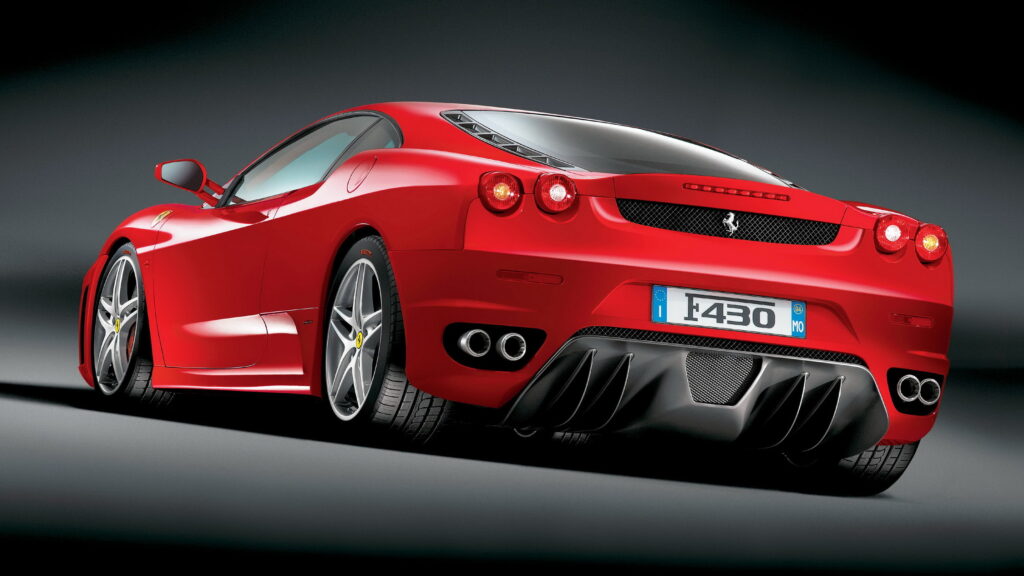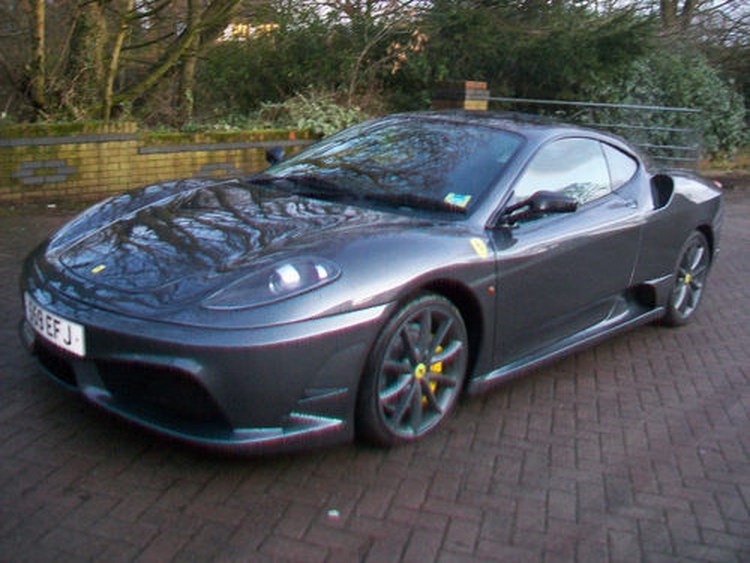A used car dealer from Spain can now breathe a multi-million dollar sigh of relief, having been absolved of criminal liability in a case involving the violation of Ferrari’s intellectual property rights by driving a Ford Cougar-based replica. The Spanish judge ruled in favor of the A Coruña dealer, sparing them from a €2.1 million (or US$2.2 million at current exchange rates) penalty.
The saga began in October of 2018, when the dealer bought the doppelganger, which had been extensively modified to look like a Ferrari F430 Scuderia, from its previous owner. The dealer obtained the vehicle with the intention of using it as a management car for the sales team, so he added some stickers with the company logo on the sides. However, just a few weeks after taking ownership, the police seized the car and used it as evidence against the businessman.
While that sounds like a strong reaction, it was only the start, as reported by Periodismo Del Motor. Ferrari decided to pursue criminal charges against the dealer, seeking a €2.1 million (US$2.2 million) fine and a one-year prison sentence in the case.
More: Ferrari Hits 812 Superfast Owner With Lawsuit Over His Instagram Posts

Ferrari’s allegations may have worked against the company in this instance. The judge in the case appeared to recognize that the penalties Ferrari sought were disproportionately punitive for several reasons.
For starters, the dealer didn’t modify the car, but instead bought it already Ferrarized. This means they weren’t involved in producing fraudulent cars. Moreover, they were using it as a car for employees, and the time it was seized, showed no signs of even planning to sell it.
Finally, although the car looks a like an F430 Scuderia, it doesn’t take an expert to notice that it’s a fake. Beyond the fact that the engine is the wrong size and in the wrong part of the car, even the Ferrari badge was inaccurate, featuring the Chilean flag rather than the Italian one at the top.
More: Ferrari Wins Case Against Mansory For Copying The FXX K With The 4XX Siracusa

“It is a rather unusual fact that an intellectual property case ends up in criminal proceedings ,” the businessman’s lawyer, María Muiño González, told El Pais. The defense has spent three years “analyzing the ins and outs of the brand” and maintains that the accused “never wanted to appear to have a real Ferrari.” “The emblems were crude and you could see that they were simple stickers,” she explains, “and I wasn’t going to sell it either; “He had it in his possession for only 12 days until it was seized.”
“It’s quite unusual for an intellectual property case to escalate into criminal proceedings,” noted the businessman’s lawyer, María Muiño González, told El Pais. The defense team invested three years in closely examining the brand and firmly asserted that the accused never had any intention of making the vehicle resemble a genuine Ferrari. “The emblems were crude, and you could clearly see that they were basic stickers,” she said. “Furthermore, there were no plans to sell it; he had it in his possession for only 12 days before it was seized.”
All of which led the judge to determine that there was no hint of harm to the interests of consumers or Ferrari. Therefore, the court has denied the automaker’s claim, and the dealer will not have to pay any amount. However, Ferrari can still appeal the ruling.




